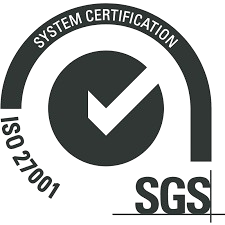What is Fiscal Transparency?
Tax transparency is a regime that covers many companies in Portugal. As a rule, it raises some doubts, especially for those dealing with this obligation for the first time. That's why, in this article, we'll explain what the Tax Transparency Regime (RTF) is, which companies are covered, and how it applies in practice. You'll also find out the answers to some of the most common questions about the RTF.
What the Transparency Regime consists of
Tax transparency is a regime laid down in the Corporate Income Tax Code (CIRC), more specifically in the 6th article. This regime came into force in Portugal in 1989 with three specific objectives:
- Promoting fiscal neutrality;
- Combat tax evasion;
- Eliminate the economic double taxation of distributed profits.
In practical terms, the Tax Transparency Regime (RTF) leads to the disregarding, for corporate income tax purposes, of income obtained by civil companies not incorporated as commercial companies, simple property management companies (when they fulfil the defined criteria) and professional companies. As a result, the taxable income of these companies is now attributed to their partners/shareholders, whether they are natural or legal persons.
If we want to simplify things a little more, in essence the RTF defines that the taxable income is imputed to the partners or shareholders for personal income tax purposes, as category B income, so there is no place for corporate income tax, except in the situations provided for in the legislation.
Who does the Fiscal Transparency Scheme apply to?
As we mentioned in the previous point, the RTF applies to three types of companies with registered offices or effective management in Portuguese territory, even if there has been no distribution of profits. The following companies are covered by the RTF:
- Non-commercial civil companies;
- Professional societies;
- And simple property management companies. In this case, only companies in which the majority of the share capital belongs, directly or indirectly, for more than 183 days of the financial year, to a family group, or when the share capital belongs, on any day of the financial year, to no more than 5 shareholders and none of them is a legal person governed by public law, are covered by this regime.
But if you have any doubts as to whether your company fits these definitions, we'll explain the concept of these companies in more detail below.
Firstly, non-commercial civil companies are companies that cannot have the practice of commercial acts as their corporate purpose, although they can have a profit-making purpose.
A simple asset management company is a company whose activity is limited to the management of assets or valuables held in reserve or for enjoyment, or to the purchase of buildings for the residence of its members. It can also be a company that jointly carries out other activities and whose income from these goods, assets or buildings amounts, on average over the last 3 years, to more than 50 per cent of its total income over the same period.
However, in this type of company you also need to be aware of what is considered a family group. A family group in legal terms is a group made up of people united by a marital or adoption bond, as well as kinship or affinity in a straight or collateral line up to and including the 4th degree.
In the case of professional companies, these are companies that are set up to carry out a specific professional activity that is included in the list of activities in article 151 of the IRS Code, and in which all the partners are natural persons and professionals in this activity.
In addition, companies whose income derives more than 75 per cent from the joint or isolated exercise of professional activities that are provided for in article 151 of the CIRS are also considered to be professional companies, provided that, cumulatively:
- For more than 183 days of the tax period;
- The number of members is no more than 5;
- None of them is a legal person governed by public law;
- At least 75 per cent of the share capital is held by professionals who carry out these activities, either totally or partially, through the company.
Note: The professions of architects, engineers, musicians, accountants, nurses, lawyers, solicitors, doctors and teachers, among others, are on the list of these activities.
The role of Serro & Andrade
At Serro & Andrade, we closely monitor changes in the tax system and are ready to help companies comply with these new requirements. With an experienced team in consulting and accounting, we assist our clients in adapting to new tax realities, such as the 15% minimum tax for multinationals.
If your company is affected by these new rules or if you want to understand how this measure could impact your operations, contact us. We offer specialized consulting to ensure your fiscal obligations are met efficiently and securely.






